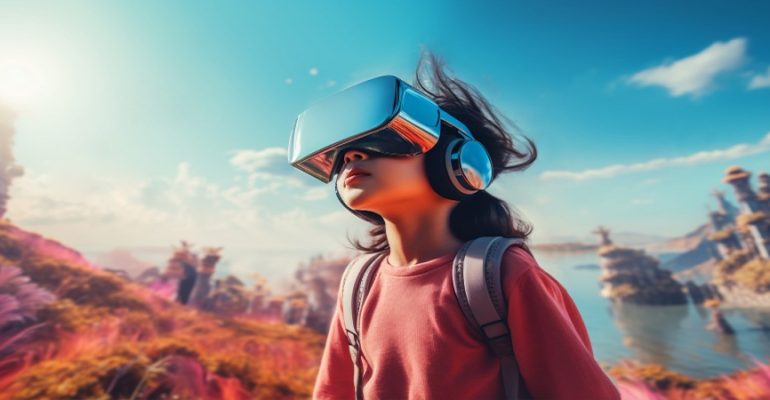Virtual reality (VR) is reshaping the tourism industry by providing immersive experiences that enhance travel planning and engagement. By allowing potential travelers to explore destinations before they arrive, VR can influence their decisions and improve their overall travel experiences. This article delves into the applications of VR in tourism, its benefits, challenges, and future potential.
Applications of VR in Tourism
Virtual Destination Tours: VR enables travelers to explore destinations virtually before making travel decisions. This allows them to experience the sights, sounds, and atmospheres of various locations.
Example: Tourism boards can create virtual tours of popular attractions, such as museums or national parks, allowing potential visitors to experience them from home.
Hotel and Accommodation Previews: Hotels and resorts are increasingly using VR to showcase their properties. Virtual tours can help potential guests visualize rooms, amenities, and the overall ambiance.
Case Study: A hotel might offer a 360-degree virtual walkthrough of its rooms, lobbies, and recreational facilities, enabling guests to make informed choices about their accommodations.
Cultural Experiences: VR can provide cultural experiences that allow travelers to engage with local customs and traditions. This immersive approach can enhance understanding and appreciation of different cultures.
Example: Users can participate in virtual cultural festivals, culinary classes, or traditional performances, fostering a deeper connection to the destination.
Travel Planning Assistance: VR can assist travelers in planning their trips by providing an interactive platform to explore itineraries and attractions. This can lead to more informed decisions about travel routes and activities.
Benefits of VR in Tourism
Enhanced Decision-Making: By offering virtual previews of destinations and accommodations, VR can help travelers make more informed decisions, leading to higher satisfaction rates with their choices.
Increased Engagement: VR creates an engaging experience that captures the interest of potential travelers. The ability to explore destinations virtually can inspire travel and boost bookings.
Accessibility for All: VR can make travel experiences accessible to individuals who may have physical limitations or financial constraints. Virtual travel allows people to explore the world from the comfort of their homes.
Marketing and Promotion: For tourism businesses, VR serves as a powerful marketing tool, allowing them to showcase their offerings in an interactive format that can stand out in a crowded marketplace.
Challenges of Implementing VR in Tourism
Despite its advantages, the integration of VR in tourism faces several challenges:
Cost of Technology: Developing high-quality VR content and experiences can be expensive. Smaller tourism businesses may struggle to invest in the necessary technology.
Content Creation: Creating engaging and realistic VR experiences requires significant expertise in both technology and storytelling. Not all tourism organizations have the resources to produce compelling content.
User Experience Limitations: Some individuals may experience discomfort or motion sickness while using VR. Ensuring a comfortable user experience is crucial for widespread adoption.
Equity and Access Issues: Not all travelers have access to VR technology, which can limit its reach. Ensuring equitable access to VR experiences is essential for maximizing its benefits in the tourism industry.
The Future of VR in Tourism
The future of VR in tourism holds exciting possibilities, with ongoing advancements likely to enhance its applications:
Integration with Augmented Reality (AR): The convergence of VR with AR can create hybrid experiences that blend virtual and real-world elements, enhancing the travel experience for users.
Improved Personalization: As technology advances, VR experiences can become more personalized, allowing users to tailor virtual tours and activities based on their preferences and interests.
Broader Adoption Across the Industry: As more tourism businesses recognize the benefits of VR, we can expect wider adoption across various sectors, from travel agencies to attractions and accommodations.
Enhanced Sustainability: Virtual travel experiences can reduce the environmental impact of tourism by offering alternatives to physical travel, allowing individuals to explore destinations without contributing to carbon emissions.
Conclusion
Virtual reality is transforming the tourism industry by providing innovative solutions that enhance travel planning and engagement. While challenges remain, the potential benefits of VR in tourism are significant. As technology continues to evolve, VR can play a crucial role in shaping the future of travel, offering immersive experiences that inspire and engage travelers around the world.



